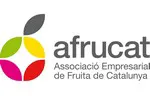Recently, the fruit and vegetable sector of Lleida has been accused of being responsible for most COVID-19 infections in the Segrià region. “A certain association and the media have given examples of cases that are not representative of Lleida's fruit and vegetable sector at all. The health authorities, however, have not linked the coronavirus outbreak to this sector,” says Manel Simon, director of Afrucat (the Fruit Business Association of Catalonia). "The fact that the strict safety and hygiene protocols that we designed before the campaign have allowed us to find cases doesn't mean that our sector is the source," he says.
Afrucat published the first protocol for fruit plants against COVID-19, reviewed and validated by the Health Department of the Catalonian Government and validated and recommended by UGT. This protocol, followed by practically all those associated with the entity, outlines a series of strict measures for the protection of the health of workers at fruit plants.
When the entire country was in lockdown, the fruit sector in Catalonia continued working, both in the apple packing plants and in the preparations for the upcoming stone fruit harvest during the months of March, April and May. According to the representative of Afrucat, “tests were carried out during that period, without there being a single detection. By the time the de-escalation process started, the number of cases had been considerably reduced, although COVID-19 detections were still reported across Spain. In this period, we have all been in contact with family and friends, so it was a matter of time before new outbreaks were detected. In our case, we didn't find a case until around a month after the de-escalation started.”
Our controls are very strict, perhaps the strictest in the entire sector. We measure the temperature of all workers and anyone who shows any symptoms is monitored. When a case is detected, we inform the health authorities and we separate and isolate the infected person. We have voluntarily tracked and tested all the staff of the companies that are associated to Afrucat, covering the costs ourselves. Most of the more than 100 cases that we detected were mainly young people, both immigrants and non-immigrants who displayed no symptoms. Had it not been for these tests, we wouldn't have discovered that there are so many asymptomatic people who unknowingly infect those around them. Why have these cases arisen? Simply because we were the first to test," says Manel Simon.
The stone fruit campaign will end about 10 days early
Persistent rains and hail have caused Catalonia's peach and nectarine harvest to be reduced by around 30% this year. The production is scarce in almost all growing areas currently in the harvest period, both in Spain and in other countries, including important producers, such as France and Italy. For example, in Emilia Romagna, the impact of frosts has reduced the harvest by 80%.
"There is a very low supply of fruit in Europe, so on a commercial level, things are going smoothly. Fruit shortages are bringing balance to the market, as there's always someone aiming to push prices down, but having difficulties to find fruit. Therefore, prices remain at very reasonable levels. However, profit margins will depend on whether or not producers have a good volume of usable fruit. It will be more difficult for those who have had low yields and significant losses. The harvest kicked off about two weeks early and now the volumes are reaching their peak. But with the supply that we have, there will start to be scarcity from mid-August, about ten days earlier than usual. This will give more room to pears and apples, which won't have to face as much competition,” says Manuel Simon.
 For more information:
For more information:
www.afrucat.com
